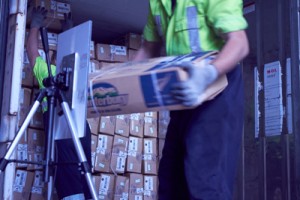
In July, the Chinese subsidiary of major US meat processor OSI Group was in deep trouble for selling expired chicken and beef to McDonalds and other fast food chains. Police detained Shanghai meat plant employees and an apologetic OSI rushed experts in to investigate the obvious failure in its supply chain practices.
Not an unfamiliar scenario to those who have followed New Zealand dairy industry involvement with China over the years.
The dangers of deliberate malpractice or simple human error can never be eliminated fully, but having efficient traceability built into food product supply chains must surely be a huge part of the solution to safety and authenticity concerns.
New Zealand’s meat industry is moving forward as well, most recently with a trial on the use of GS1 standards and RFID (radio frequently identification) technology to track and trace a shipment of Halal beef products to Malaysia. That country’s Muslim population is a big consumer of such products – part of a total New Zealand Halal meat export trade worth $2.5 billion annually. The authenticity of Halal products is a rising concern among Malaysia’s Muslims (with no special reference to New Zealand-sourced meat).
During April/May, ANZCO Foods and partners shipped 109 cartons of frozen lungs, tripe and tails for the trial between ANZCO Food’s Kokiri plant-a Halal-certified processing plant located near Hokitika—and Kuala Lumpur. Each carton was uniquely identified with a GS1 standard serialized Global Trade Item Number (sGTIN): The shipping container and key locations in the supply chain were also uniquely identified.
The trial involved reading and recording ‘event’ information (carton information, read event location, event time etc), at eleven (11) discrete locations between the Kokiri plant and Kuala Lumpur.
Central to the trial was the recording of event data in two discrete but interoperable network servers, one based in Hong Kong, one based in Malaysia that communicate with each other using the open, global EPCIS (EPC Information Services) standards. EPCIS is a GS1 standard that enables multiple partners to access and share event data in understandable and meaningful ways using global standards: The EPCIS explains the “what”, “where”, “when” and “why” questions regarding a product in question at each key stage of its movement along the supply chain.
The trial was very successful. The partners could be absolutely assured the 109 cartons from ANZCO Kokiri arrived into cold storage in Kuala Lumpur (KL), ready for retailing to Halal consumers. Further, EPCIS information provided a full traceability outcome based on data accumulated throughout the entire meat production to receipt of imported goods into the KL store process.
The trial has added further weight to earlier research findings that include a trial shipment of venison cuts from Canterbury to Germany undertaken by the New Zealand RFID Pathfinder Group, in late 2012. Then, deer were tagged with EPC encoded RFID ear tags, cartons of chilled venison were tagged with EPC/RFID labels and the EPCIS was used to record and report event information at the required level of traceability (from farm to wholesale distribution in Hamburg).
It is now clear that combining EPC standards with high quality UHF RFID tags and readers will give robust and efficient tools for traceability and product authenticity in the meat industry and elsewhere, anywhere.
For New Zealand, product safety and authenticity might be just the beginning. Traceability outcomes can also be used to demonstrate the quality and provenance of food products by linking data from the supply chain with product brands and with specific consumer demands for information.
Product safety and authenticity are hugely important for market access and retention of market share. As consumers can also start seeing more clearly the quality and desired provenance of New Zealand foods, the more those foods will be valued in our target markets.
There are many excellent reasons for New Zealand producers and exporters to adopt the best-available tools for traceability. Venison exports in time for Christmas in Germany and Halal meat shipments to a discerning Muslim market in Malaysia are great places to start: Let’s get moving on more opportunities of potentially huge value.
By Gary Hartley of GS1 New Zealand
Photo: Loading cartons into the container at Anzco Koriri.




























































































